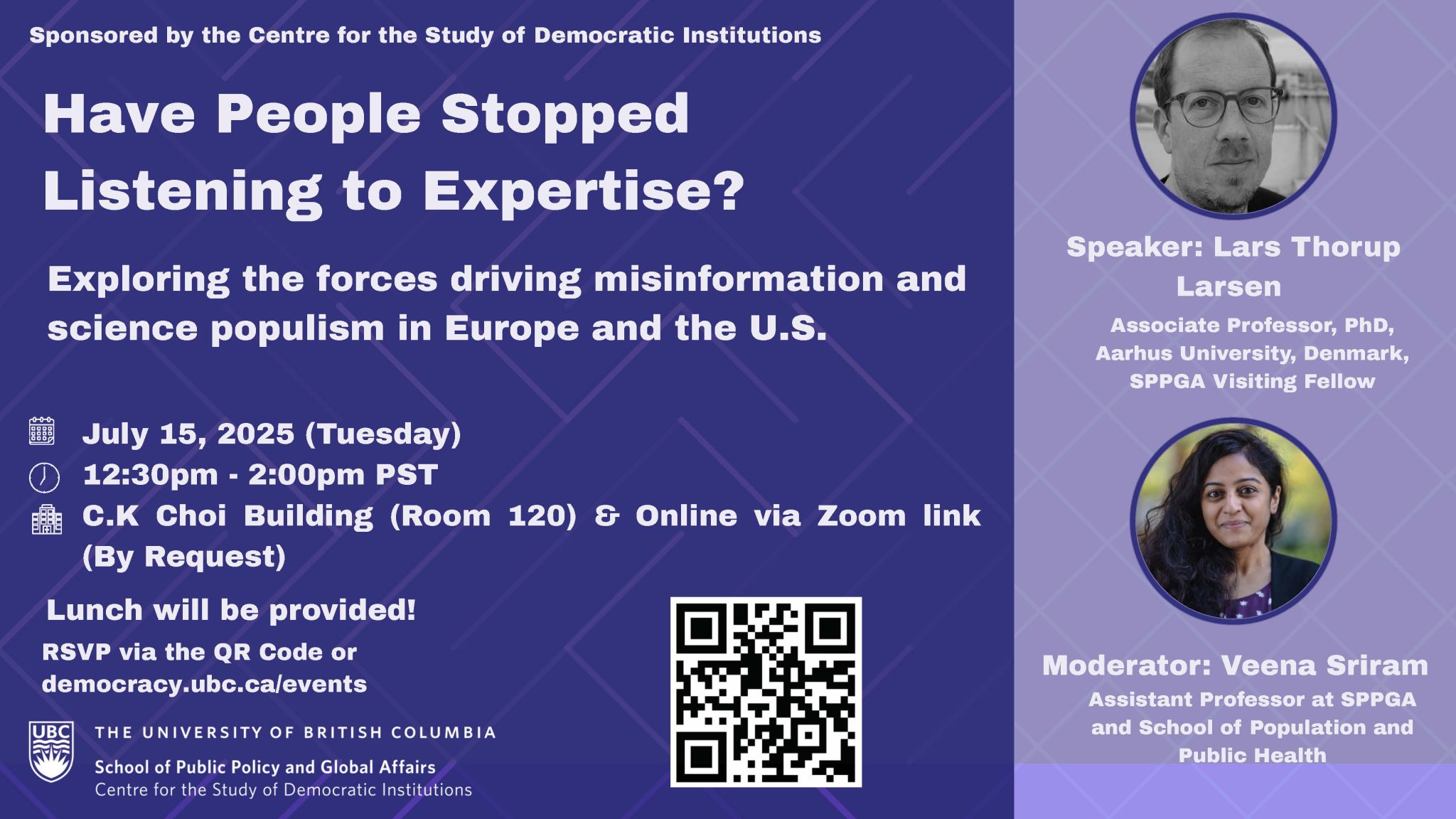Radiation is an invisible hazard, largely imperceptible to the human senses. Damage from the fall out from nuclear power plant accidents, such as at Fukushima in March 2011, is also largely imperceptible. Similarly, even in democratic countries the consequences of nuclear accidents are often made invisible by governments that limit public attention to radiation and make its health effects almost impossible to observe. This Workshop on Fukushima, six years after the `3.11’ tragedy, presents the results of research carried out in Japan by Centre for Japanese Research scholars and documentary film director Ian Thomas Ash. It focuses on current events at the stricken nuclear power plant, the condition of evacuees and their lives in surrounding communities, and the legal issues involved in re-starting Japan’s 41 nuclear power plants again across the country.
Lunchtime Workshop
12:00PM – 2:00PM | Room 120, C.K. Choi Building, 1855 West Mall
Speakers:
- Dr. David W. Edgington (Department of Geography, UBC): “A Day Out in Fukushima: Reflections on a Field Trip to the Dai-ichi Nuclear Power Plant”
- Ian Thomas Ash (Independent Film Maker, Tokyo): “The Dire Situation of the ‘Voluntary Evacuees’”
- Dr. Shige Matsui (Allard School of Law, UBC): “Restarting Nuclear Power Plants in Japan After the Fukushima Disaster”
Film Showing
4:00PM – 6:30PM | Auditorium, Asian Centre, 1871 West Mall
“Unavoidable” (“Sezaruwoenaii”): An Examination of Evacuees in Fukushima, 6 Years After 3.11
Following the film will be a Q&A session with the director Ian Thomas Ash, and a sushi reception.
RSVP | Event Poster
About the Director
Born in America, Ian Thomas Ash earned an MA in Film and Television Production at the University of Bristol, UK, in 2005. His first feature documentary, ‘the ballad of vicki and jake’ (2006), received the Prix du Canton Vaud prize at the 2006 Visions du Reél International Documentary Film Festival in Nyon, Switzerland. Ian’s two feature documentaries about children living in areas of Fukushima contaminated by the 2011 nuclear meltdown, ‘In the Grey Zone‘ (2012) and ‘A2-B-C‘ (2013), have been screened at festivals around the world where they have received multiple awards. His recent documentaries have all dealt in some way with health and medicine in Japan, including ‘-1287‘ (2014) which received numerous awards, including the Audience Award for Best Feature at the 2015 Nippon Connection Film Festival in Germany, the First Prize in the Asian Competition at the 2015 DMZ Docs Film Festival in Korea and the Best Documentary at 2016 SoCal Film Festival. “Dying at Home” (2016) and “Suturing Cultures” (2017), both commissions from NHK World, are on opposite end of the spectrum: one is about end-of-life care, while the other is about the future doctors of Japan. Ian has lived in Japan for a total of 13 years and is currently in production for several documentaries, including the feature-length version of his film about end-of-life care that he is directing and another about male sex workers in Tokyo, which he is producing.
Recent Awards:
- Best Documentary at the 2016 SoCal Film Festival (USA) for his film “-1287” (2014)
- People’s Choice (Audience) Award at the 2015 Lake Champlain International Film Festival (USA) for his film “-1287” (2014)

